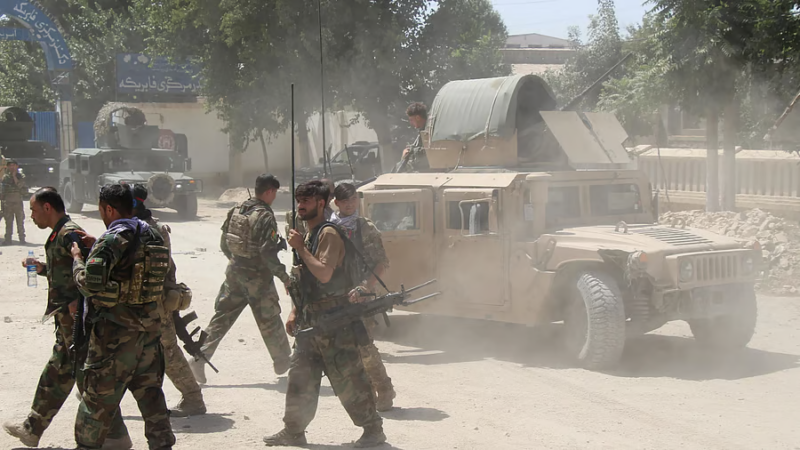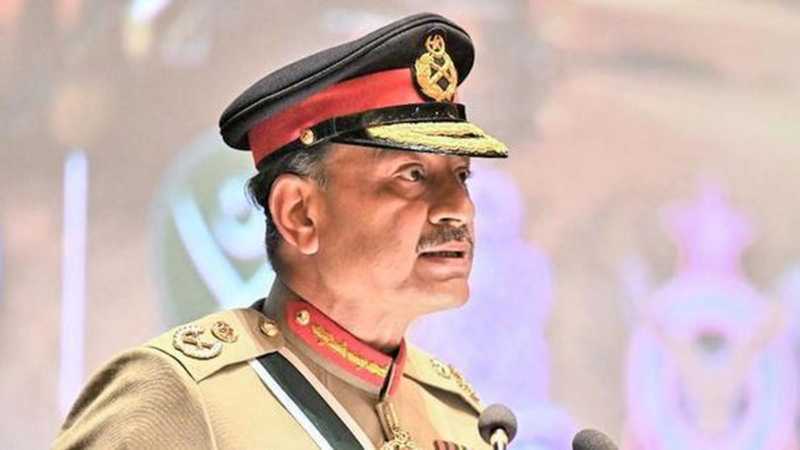Jaish-e-Mohammed’s New Women’s Wing and Institutionalization of Terrorism in Pakistan

Jaish-e-Mohammed (JeM), one of Pakistan’s most notorious terrorist organizations, has recently announced the formation of its first-ever women’s wing, Jamaat-ul-Mominaat, marking a highly consequential shift in South Asia’s militant landscape. This move not only represents the strategic evolution of JeM, especially after suffering crippling losses in Operation Sindoor, but also reveals how proscribed groups are able to operate with impunity in Pakistan while much of the West turns a blind eye to these developments.
The announcement of Jamaat-ul-Mominaat was made via an official communique from JeM’s leader, UN-designated terrorist Maulana Masood Azhar. Recruitment began on October 8, 2025, at Markaz Usman-o-Ali in Bahawalpur, targeting wives of JeM commanders and economically vulnerable women studying at the group’s centers in Bahawalpur, Karachi, Muzaffarabad, Kotli, Haripur, and Mansehra. The new wing will be led by Sadiya Azhar, the sister of Masood Azhar, whose husband Yusuf Azhar was killed in the May 7 strikes that comprised Operation Sindoor. This move aligns JeM with global terrorist outfits like ISIS, Boko Haram, and Hamas, who have previously deployed women in both support and operational roles. This unprecedented incorporation of women signals JeM’s intent to institutionalize female participation, possibly including combat roles and suicide terrorism, a tactic long used in other regions but largely absent in South Asia’s jihadist movements until now. Intelligence sources suggest the shift is a direct response to the group’s operational losses and the need to diversify its human capital, leveraging vulnerable women for logistics, recruitment, and potentially for attacks.
Despite being banned and designated as a terrorist organization by the United Nations and major Western powers, JeM’s continued operational freedom inside Pakistan raises alarming questions about the efficacy and sincerity of counterterrorism measures by the Pakistani state. Historically, such bans have been mere formalities, with the group frequently rebranding under different names or as NGOs, all while retaining their infrastructure and leadership. Pakistan’s security apparatus has repeatedly failed to dismantle the group, with arrested leaders often released and organizations permitted to reassemble under new names. Fundraising for new centers and operational expansion is brazen, including online campaigns openly visible on popular Pakistani platforms like EasyPaisa. JeM and similar groups have relocated to Khyber Pakhtunkhwa province, where institutional rebuilding is occurring with little hindrance.
While JeM’s activities and its links to cross-border terror have drawn periodic condemnation from the US and Europe, more often than not such condemnation has not translated into robust diplomatic or economic consequences for Pakistan. The West’s strategic priorities whether Afghanistan, Iran, or great power maneuvering often relegate the issue of Pakistan-sponsored terror to secondary importance, enabling Pakistan to maintain its double game. As a result, organizations like JeM find political cover and operational space to evolve, recruit, and wage war with impunity. The enduring ties between Pakistan’s Inter-Services Intelligence (ISI) and militant groups such as JeM have blurred the lines between state and non-state actors, making effective international pressure increasingly difficult. This persistent lenience has not only enabled existing terror networks to thrive but is now allowing them to diversify by mobilizing women, thus embedding militant ideology even deeper within Pakistani society.
The creation of Jamaat-ul-Mominaat must be seen as a watershed moment in the normalization and institutionalization of terrorism within Pakistan’s social fabric. By targeting economically vulnerable women and the wives of commanders, JeM is embedding its ideology in families and communities, ensuring the next generation is indoctrinated from a young age. The rise of female militant wings increases the risk of women being used for logistics, intelligence, recruitment, and even direct violence, a phenomenon previously documented among groups like DeM in Kashmir. This development also deepens the misogynistic and anti-democratic character of Islamist extremism in Pakistan, curtailing female empowerment and entrenching regressive gender norms. Terrorist-led women’s organizations do not advance social or gender justice but instead co-opt women into violent resistance and radicalization, often under the guise of community support, job training, or spiritual renewal. The end result is a society where extremism is normalized across gender lines, blunting the possibility for genuine progressive movements.The formation of Jamaat-ul-Mominaat by Jaish-e-Mohammed is a grave escalation for both the region and the world. It demonstrates the adaptability of proscribed groups in Pakistan, who continue to function with impunity as global counterterrorism actors look the other way. By recruiting women, JeM is further rooting militant ideology into Pakistan’s social infrastructure, making future efforts to curb extremism even more challenging. It is imperative that international actors recognize and respond to this trend, lest the seeds of terror sown today grow ever deeper into the society of tomorrow.






